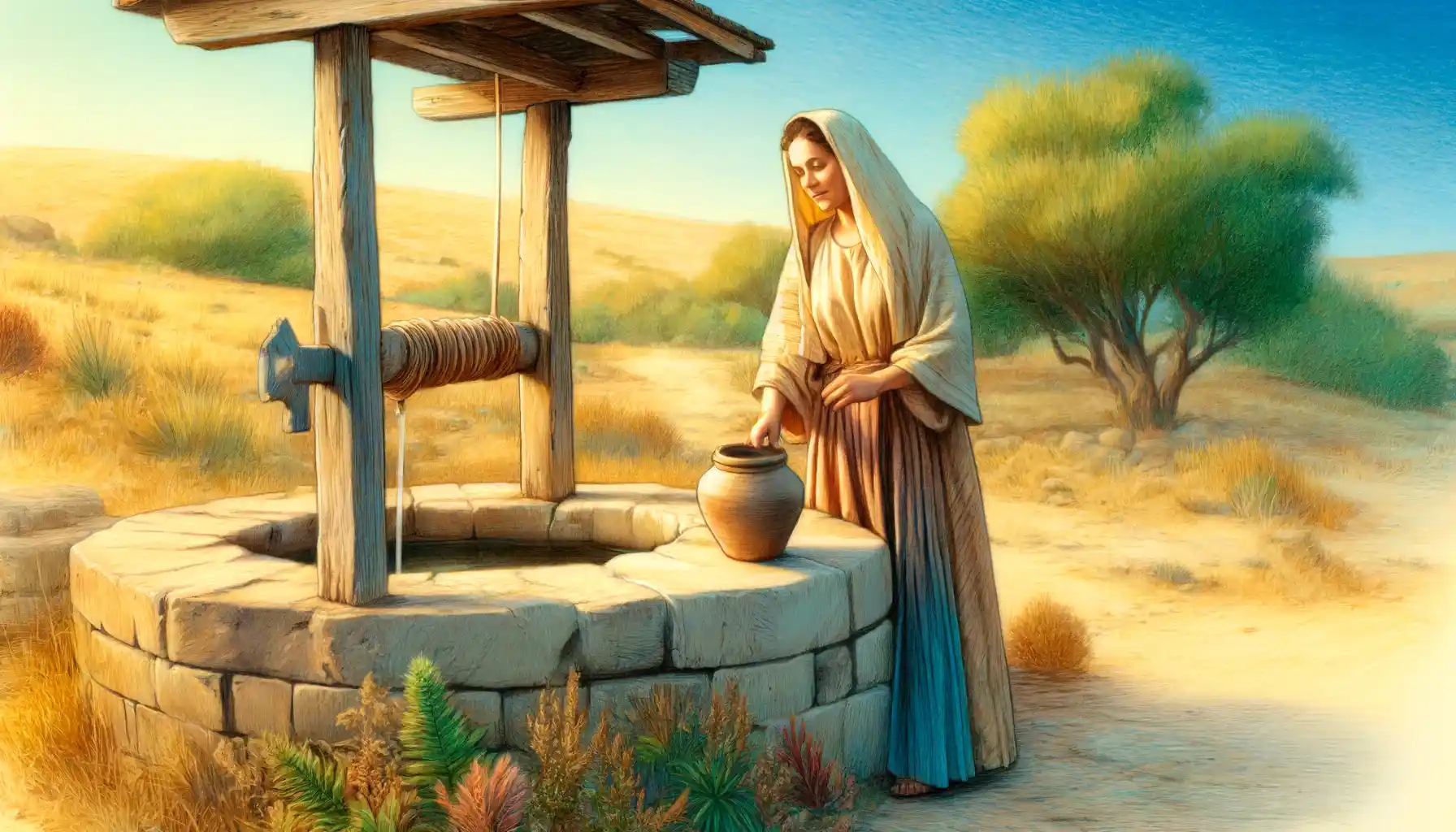
The Samaritan Woman: Met Jesus at Jacob’s well
The Samaritan woman, often referred to as the woman at the well, is a significant figure in the Gospel of John. She meets Jesus at Jacob’s Well, where He offers her “living water” and reveals her own life to her, demonstrating His knowledge and divine nature.
Quick Facts:
- Biblical Account: The story of the Samaritan woman is found in John 4:1-42. This encounter highlights themes of grace, redemption, and the breaking of societal barriers.
- Meeting Place: The meeting occurs at Jacob’s Well, a significant historical and religious site, located in Samaria near the town of Sychar.
- Revealing Conversation: In their conversation, Jesus reveals His knowledge of her personal life—specifically, that she has had five husbands and that the man she currently was with was not her husband.
- Living Water: Jesus offers her “living water,” symbolizing eternal life and spiritual satisfaction, contrasting with the physical water from the well.
- Evangelism: After her encounter with Jesus, the Samaritan woman becomes an evangelist to her own people, telling them about Jesus and leading many to believe in Him.
- Cultural and Social Context: The narrative also addresses the deep-seated animosity between Jews and Samaritans, making her willingness to speak to Jesus and her subsequent evangelism particularly significant.
Contextual Background: The story of the Samaritan woman meeting Jesus at Jacob’s Well is found in John 4:1-42. This encounter is rich with theological, cultural, and social implications. Jacob’s Well was a significant site, located in Samaria near Sychar, a place laden with historical and ethnic tensions between Jews and Samaritans.
Theological and Character Insights:
- Breaking Social Norms: The interaction between Jesus and the Samaritan woman breaks several significant social norms of the time. First, Jews typically avoided Samaritans due to deep-seated prejudices. Second, it was unusual for a man to speak publicly with a woman who was not his family. Jesus’ willingness to engage with her directly challenges these cultural barriers, emphasizing the inclusivity of His ministry.
- Living Water: One of the central elements of their conversation is Jesus’ offer of “living water” (John 4:10). This metaphorical water represents the gift of eternal life and spiritual renewal that Jesus provides, contrasting with the physical water from the well, which can only quench physical thirst temporarily.
- Spiritual Insight and Revelation: Jesus reveals His knowledge of the woman’s personal life, specifically her history of multiple husbands. This disclosure is not meant to shame but to demonstrate His divine insight and to pivot the conversation towards deeper spiritual truths. The woman’s response to this revelation—recognizing Jesus as a prophet—marks a turning point in her understanding and acceptance of His message.
- Evangelistic Impact: After her encounter with Jesus, the Samaritan woman returns to her town to share her experience, effectively becoming an evangelist. Her testimony is compelling enough that many Samaritans come to believe in Jesus. This shift not only highlights the transformative power of personal testimony but also her role as a catalyst in spreading the Gospel among her people.
- Worship in Spirit and Truth: The dialogue also touches on the nature of true worship. Jesus explains that genuine worshipers will worship the Father “in spirit and truth” (John 4:23-24), a statement that shifts the focus from traditional locations of worship (like temples) to a more personal, spiritual interaction with God. This teaching is foundational for understanding Christian worship as transcending physical and ethnic boundaries.
Legacy and Symbolism: The Samaritan woman symbolizes many who find themselves on the margins of society, yet are directly engaged and transformed by Jesus’ message. Her story is a powerful testament to the grace that crosses societal and cultural barriers, emphasizing the universal scope of the Gospel.
Conclusion: The narrative of the Samaritan woman at Jacob’s Well serves as a profound lesson in the nature of divine encounters and their potential to revolutionize personal and communal life. It challenges existing social norms, redefines the essence of worship, and illustrates the impact of an authentic encounter with Christ. Her story remains a compelling example of personal transformation and evangelistic zeal within the Christian tradition.



